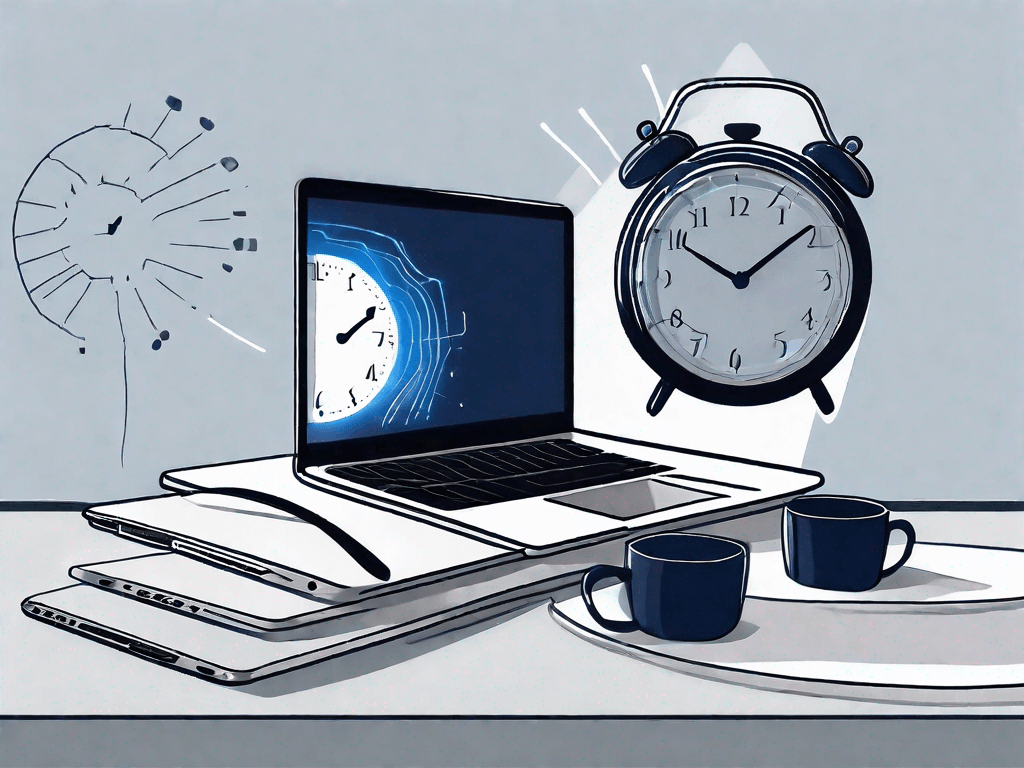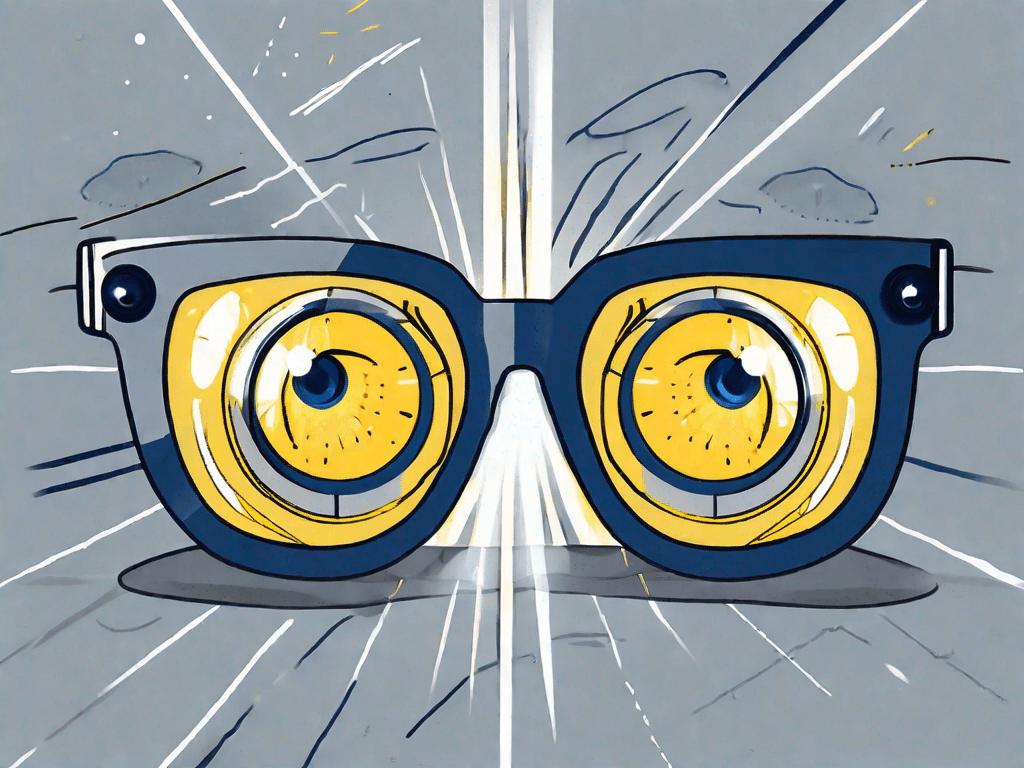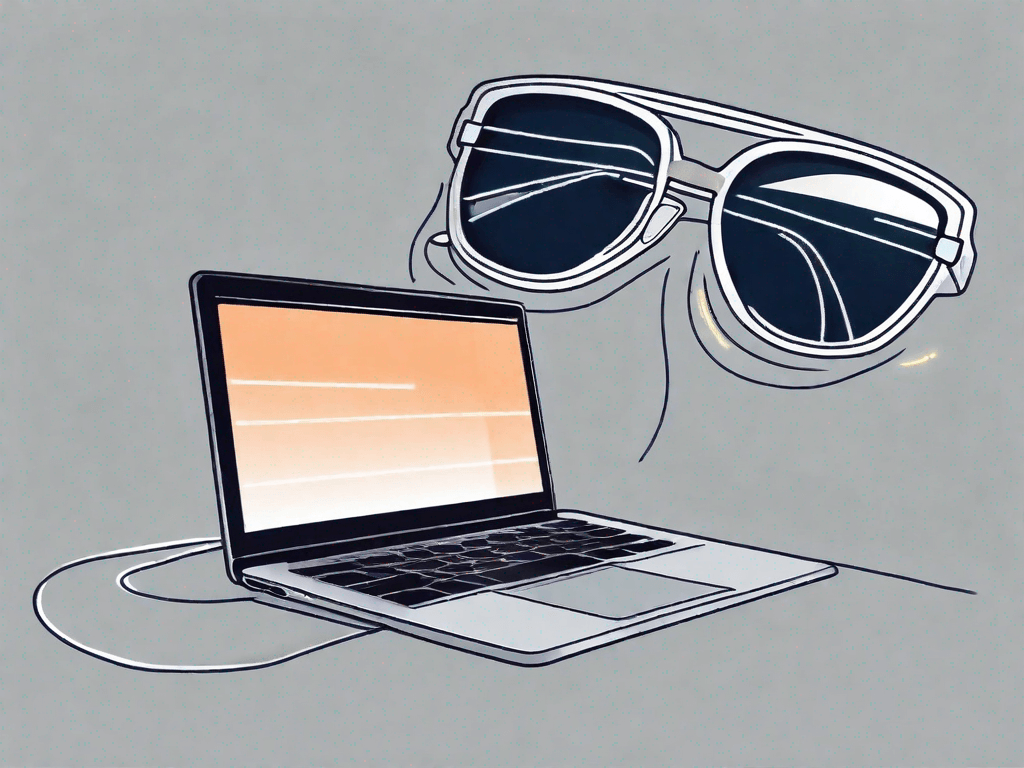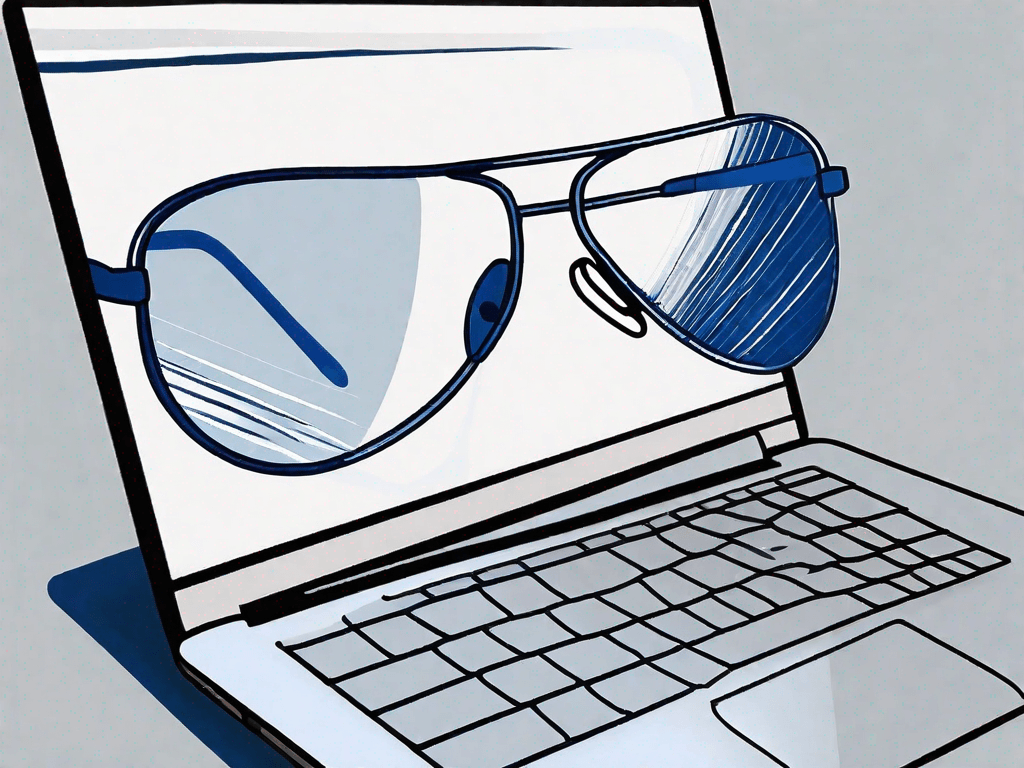Can I Wear Blue Light Glasses All the Time?
Many people spend a significant amount of time using electronic devices such as computers, smartphones, and tablets. With the increasing concern about the potential harm caused by blue light emitted from these devices, blue light glasses have become a popular accessory. These glasses claim to protect the eyes from blue light and reduce the associated symptoms. But the question is: can I wear blue light glasses all the time? Let's dive into the topic and explore the different perspectives.
Understanding Blue Light and Its Effects
Before we discuss whether wearing blue light glasses constantly is a viable option, it's important to understand what blue light is and how it impacts our eyes. Blue light is part of the visible light spectrum with a short wavelength and high energy. It is emitted by electronic devices, LED lights, and the sun. While sunlight is the main source of blue light, digital screens have become a significant contributor to our exposure.
What is Blue Light?
Blue light, also known as high-energy visible (HEV) light, has a shorter wavelength and higher energy compared to other colors on the light spectrum. This characteristic allows it to penetrate the eye more easily, potentially causing various effects on our visual health.
How Does Blue Light Impact Your Eyes?
Research suggests that prolonged exposure to blue light can lead to eyestrain, dry eyes, and possible long-term damage to the retina. Additionally, blue light exposure can interfere with our sleep cycle, as it suppresses the production of melatonin, a hormone that helps regulate sleep. This is particularly important in the evening when our bodies naturally prepare for rest.
One of the reasons blue light can have such a significant impact on our eyes is because of its ability to reach the retina. The retina is a thin layer of tissue located at the back of the eye that contains cells responsible for detecting light and transmitting signals to the brain. When blue light enters the eye, it can pass through the cornea and lens and reach the retina, potentially causing damage over time.
In addition to the potential harm to the retina, blue light can also contribute to digital eye strain. This is a condition characterized by symptoms such as dryness, redness, and blurred vision after prolonged use of digital devices. The high energy and short wavelength of blue light make it more likely to scatter and cause visual discomfort, leading to these symptoms.
Another aspect of blue light's impact on our eyes is its effect on our sleep patterns. Our bodies have a natural sleep-wake cycle, also known as the circadian rhythm, which is regulated by various factors, including the production of melatonin. Melatonin is a hormone that helps signal to our bodies when it's time to sleep. However, exposure to blue light, especially in the evening, can suppress the production of melatonin, making it harder for us to fall asleep and stay asleep.
It's worth noting that not all blue light is harmful. In fact, some studies suggest that exposure to blue light during the day can have positive effects on our mood, alertness, and cognitive performance. The key is to strike a balance and minimize excessive exposure, especially in the evening when our bodies need to wind down and prepare for rest.
Given the prevalence of digital screens in our daily lives, it's no surprise that blue light glasses have gained popularity as a potential solution. These glasses are designed to filter out or block blue light, reducing our exposure and potentially alleviating some of the negative effects. However, it's important to note that the effectiveness of blue light glasses may vary, and more research is needed to fully understand their impact.
In conclusion, blue light can have both positive and negative effects on our eyes and overall well-being. While it's important to be aware of the potential risks associated with prolonged exposure, it's also crucial to remember that not all blue light is harmful. Finding a balance and taking steps to minimize excessive exposure, such as using blue light glasses or adjusting screen settings, can help protect our eyes and promote better sleep.
The Purpose of Blue Light Glasses
Blue light glasses are specifically designed to filter out or block a certain percentage of blue light. They aim to reduce the potential eye strain and discomfort associated with prolonged exposure to digital screens. But how do these glasses work, and what benefits do they offer?
Blue light glasses use specialized lenses that contain a coating designed to filter out or block blue light before it reaches the eyes. This allows for a reduction in the amount of blue light reaching the retina, potentially minimizing its impact on eye health.
But what exactly is blue light? Blue light is a high-energy, short-wavelength light that is emitted by digital screens, such as smartphones, tablets, and computers. It is also present in fluorescent and LED lighting. While blue light is a natural part of sunlight and is beneficial during the day as it helps regulate our sleep-wake cycle, excessive exposure to artificial blue light can have negative effects on our eyes.
Advocates of blue light glasses claim that they can alleviate digital eye strain, improve sleep quality, and provide overall eye comfort during screen time. Digital eye strain, also known as computer vision syndrome, is a common condition that occurs when the eyes are exposed to digital screens for extended periods. Symptoms can include dry eyes, blurred vision, headaches, and neck and shoulder pain. By reducing the amount of blue light reaching the eyes, blue light glasses may help alleviate these symptoms and provide relief.
Sleep quality is another area where blue light glasses may offer benefits. Exposure to blue light in the evening can suppress the production of melatonin, a hormone that regulates sleep. This can disrupt our natural sleep-wake cycle and make it harder to fall asleep. By filtering out blue light, especially in the hours leading up to bedtime, blue light glasses may help improve sleep quality and promote a more restful night's sleep.
In addition to reducing eye strain and improving sleep quality, blue light glasses may also help prevent potential long-term damage to the retina. Studies have shown that prolonged exposure to blue light can contribute to the development of age-related macular degeneration (AMD), a leading cause of vision loss in older adults. By reducing the amount of blue light reaching the retina, blue light glasses may help protect against the harmful effects of blue light and potentially reduce the risk of developing AMD.
It's important to note that while blue light glasses can be beneficial for those who spend a significant amount of time in front of digital screens, they are not a cure-all solution. It's still important to practice good eye health habits, such as taking regular breaks from screen time, maintaining proper posture, and ensuring adequate lighting in your workspace.
In conclusion, blue light glasses work by filtering out or blocking blue light before it reaches the eyes, potentially reducing eye strain and discomfort. They offer benefits such as alleviating digital eye strain, improving sleep quality, and potentially protecting against long-term damage to the retina. While they can be helpful, it's important to remember that they should be used in conjunction with other healthy eye habits for optimal eye health.
The Debate: Wearing Blue Light Glasses All the Time
Now, let's delve into the ongoing debate about wearing blue light glasses constantly. While some argue for continuous use, others caution against overuse and emphasize the importance of moderation.
Blue light glasses have gained popularity in recent years as more people spend extended periods of time in front of screens. These glasses are specifically designed to block or filter out the blue light emitted by electronic devices such as smartphones, tablets, and computers. The blue light from these devices has been linked to eye strain, sleep disturbances, and potential long-term damage to the eyes.
Pros of Constant Use
Proponents of wearing blue light glasses all the time argue that it provides consistent protection against blue light regardless of the environment. This continuous barrier can help mitigate potential eye strain and discomfort, especially for individuals who spend a significant amount of time in front of screens.
Additionally, blue light glasses are believed to improve sleep quality. Exposure to blue light in the evening can disrupt the body's natural sleep-wake cycle by suppressing the production of melatonin, a hormone that regulates sleep. By wearing blue light glasses throughout the day, individuals can minimize their exposure to blue light and promote better sleep at night.
Furthermore, blue light glasses are often equipped with anti-glare properties, reducing the glare from screens and improving visual comfort. This can be particularly beneficial for those who work in brightly lit environments or frequently use devices outdoors.
Cons of Overuse
On the other hand, skeptics suggest that wearing blue light glasses constantly may not be necessary and could interfere with the natural balance of light that our eyes need. Overusing these glasses could potentially lead to an over reliance on them, reducing the eyes' natural ability to filter out harmful light and adjust to varying light conditions.
Some experts argue that our eyes are designed to adapt to different lighting environments, and by constantly wearing blue light glasses, we may hinder this natural adaptation process. They believe that occasional breaks from wearing the glasses can allow our eyes to adjust and maintain their natural ability to filter out blue light.
Moreover, there is limited scientific evidence supporting the long-term benefits of wearing blue light glasses. While short-term studies have shown positive effects on reducing eye strain and improving sleep quality, more research is needed to determine the potential risks and benefits of continuous use.
It is also important to note that blue light glasses are not a substitute for good eye care practices. Taking regular breaks from screen time, practicing proper ergonomics, and maintaining a healthy lifestyle are equally important in protecting our eyes from the potential negative effects of blue light exposure.
In conclusion, the debate surrounding wearing blue light glasses all the time is multifaceted. While there are potential benefits to continuous use, it is essential to strike a balance and avoid overreliance on these glasses. Moderation, along with other healthy eye care practices, can help ensure optimal eye health in the digital age.
Expert Opinions on Continuous Use of Blue Light Glasses
So, what do eye care professionals have to say about the constant use of blue light glasses? Let's explore the viewpoints of ophthalmologists and optometrists.
Ophthalmologists' Views
Ophthalmologists generally agree that blue light glasses can provide some relief from digital eye strain. However, they also emphasize the importance of taking regular breaks from screen time, adjusting display settings, and maintaining proper lighting conditions as part of a comprehensive approach to eye health.
When it comes to blue light glasses, ophthalmologists believe that they can be a helpful tool in reducing eye strain caused by excessive screen time. These glasses are designed to filter out a portion of the blue light emitted by electronic devices such as smartphones, tablets, and computers. By doing so, they aim to alleviate the symptoms associated with digital eye strain, including dryness, redness, and fatigue.
While blue light glasses can provide some relief, ophthalmologists caution against relying solely on them for eye protection. They emphasize the importance of adopting healthy screen habits, such as taking regular breaks to rest the eyes and practicing the 20-20-20 rule, which involves looking away from the screen every 20 minutes and focusing on an object 20 feet away for 20 seconds. Additionally, they recommend adjusting display settings, such as brightness and contrast, to reduce eye strain and ensuring proper lighting conditions in the environment.
Furthermore, ophthalmologists stress that blue light glasses should not be seen as a substitute for comprehensive eye care. Regular eye exams are still essential to monitor overall eye health and detect any underlying conditions that may contribute to eye strain or other vision problems.
Optometrists' Perspectives
Optometrists often recommend blue light glasses as a proactive measure to reduce the potential risks associated with prolonged blue light exposure. They highlight the importance of personalized eyecare and suggest using these glasses based on individual needs and screen time habits.
Optometrists recognize that blue light emitted by digital devices has become a significant concern in today's digital age. With people spending more time than ever in front of screens, the potential risks associated with blue light exposure have garnered attention. Optometrists believe that blue light glasses can be an effective tool in minimizing these risks.
These eyewear options are designed to selectively filter out harmful blue light while allowing other beneficial light to pass through. By doing so, they aim to reduce eye strain, improve sleep quality, and potentially prevent long-term eye damage caused by excessive blue light exposure.
However, optometrists also stress the importance of personalized eyecare. They recommend consulting with an eye care professional to determine the appropriate blue light glasses based on individual needs and screen time habits. Factors such as age, pre-existing eye conditions, and the amount of time spent in front of screens can all influence the recommendation for blue light glasses.
Optometrists also advise that blue light glasses should be used in conjunction with other healthy screen habits. Taking regular breaks, practicing good posture, and maintaining proper lighting conditions are all essential components of maintaining optimal eye health in the digital era.
In conclusion, both ophthalmologists and optometrists recognize the potential benefits of blue light glasses in reducing digital eye strain and minimizing the risks associated with prolonged blue light exposure. However, they emphasize that these glasses should be used as part of a comprehensive approach to eye care, which includes adopting healthy screen habits and seeking regular professional eye care.
Alternatives to Wearing Blue Light Glasses All the Time
If you're unsure about wearing blue light glasses constantly, there are alternative strategies to protect your eyes from the adverse effects of blue light.
Screen Time Management
One effective approach is to manage your screen time wisely. Taking frequent breaks, practicing the 20-20-20 rule (looking at something 20 feet away for 20 seconds every 20 minutes), and reducing overall screen exposure can significantly reduce the strain on your eyes.
Eye Exercises and Rest
Engaging in regular eye exercises and incorporating adequate rest into your daily routine can help alleviate eye strain caused by excessive screen time. Simple exercises, such as focusing on distant objects or gently massaging the eye area, can provide relief and promote eye health.
Making the Decision: To Wear or Not to Wear
When considering whether to wear blue light glasses all the time, several factors come into play.
Factors to Consider
First, evaluate your own screen time habits and exposure to blue light. If you find yourself spending extended periods in front of digital screens and experiencing symptoms such as eye strain, dryness, or sleep disruption, blue light glasses may be beneficial.
Secondly, take into account your other eye health practices, such as maintaining proper lighting conditions, adjusting screen settings, and following a healthy lifestyle overall. These factors can also contribute to reducing the potential risks associated with blue light exposure.
Personalizing Your Approach to Blue Light Exposure
Ultimately, the decision to wear blue light glasses all the time should be based on your individual needs and preferences. What works for one person may not work for another. Personalization is key when it comes to managing your eye health.
In conclusion, blue light glasses offer potential benefits in reducing the strain caused by blue light exposure. However, wearing them constantly is a topic of debate, with experts having varying opinions on the matter. It's essential to strike a balance and consider alternative strategies to protect your eyes. By incorporating good screen time habits, taking regular breaks, and personalizing your approach to blue light exposure, you can find a solution that suits your lifestyle and promotes optimal eye health in the digital age.





